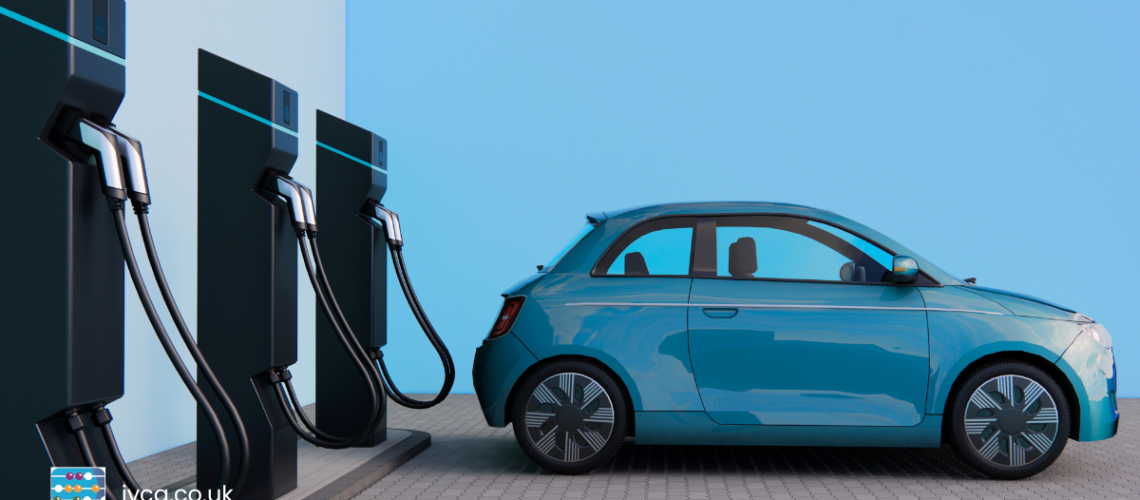You’ve taken the leap. You’ve gone electric. Your car hums instead of growls, you haven’t seen a petrol station in weeks, and you feel a bit smug every time you drive past a forecourt charging £1.80 a litre.
When it comes to electric car VAT, however, things get a little… less clear. Can you claim it back? Sort of. Sometimes. Welcome to the grey area that is UK tax law!
Let’s break it down, without sending you to sleep.
Can you reclaim VAT on an electric car?
In short: yes, but only under strict conditions.
- Business-only use: If the electric car is used exclusively for business, you can reclaim the full 20% VAT. But, and it’s a big but, “business-only” means exactly that. No detours to IKEA or swinging by your mum’s.
- Mixed use: Any personal use (including commuting) means you can’t claim VAT on the purchase. However, if you lease the vehicle, you can claim back 50% of the VAT on your lease payments. That’s the rule across the board, electric or not.
With electric car VAT, the same evidence standards apply. HMRC loves paperwork, so keep clear records and a solid log of business mileage to stay on the safe side.
| Need help ticking all the HMRC boxes? Let us manage your books for you so you can claim everything that you can (without the hassle of doing it yourself). |
What about charging costs?
Here’s where things get a bit brighter. You can reclaim VAT on the electricity used to charge the car, at work, at home, or out in public, as long as it’s for business travel.
If you’re charging at home and using the vehicle for both work and personal trips, you’ll need to work out the business-use percentage. That percentage applies to your electric car VAT claim on electricity bills.
Buying new? Benefit from capital allowances
If you’re buying a brand-new, fully electric car through your business, you can claim a 100% first-year allowance. That means you deduct the full cost from your taxable profits in year one, which is a tidy saving if your car wasn’t cheap.
Just remember, this only applies to new vehicles. Second-hand motors and leased cars don’t qualify. Still, if you’re buying new, it’s a solid reason to go electric now rather than later.
Buying second-hand? Don’t count on the VAT back
Thinking of saving cash by going second-hand? Great for your wallet, less so for your electric car VAT claim. Most second-hand vehicles are sold under the margin scheme, which doesn’t show VAT separately. And if there’s no VAT listed on the invoice, there’s nothing to reclaim.
Unless the seller is VAT-registered and clearly lists VAT on the sale, which is rare, it’s a no-go.
Installing a charger? Read this first
If your business pays for a charging point at your commercial premises, you can usually reclaim the VAT, simple enough.
Home installations are messier, however. If you’re putting in a charger at home for a company car used strictly for work, you might be able to claim back some VAT. The catch? You’ll need clear records and evidence that it’s being used for business purposes, not just topping up your weekend road trips.
What about running costs?
Here’s a small win. You can reclaim VAT on accessories, maintenance, servicing, tyres, and all the usual suspects. Just remember: if the vehicle is used for both business and personal reasons, you’ll need to apportion your electric car VAT claim accordingly. Only the business-use bit counts.
Low Benefit-in-Kind rates continue
Company car drivers take note: the Benefit-in-Kind (BIK) rate for fully electric vehicles remains low at 3% for 2025/26. It’s creeping up slightly in future years, but it’s still far more attractive than petrol or diesel alternatives.
If your business is on the fence about switching to electric, low BIK and favourable electric car VAT rules make the case even stronger.
One last thing: HMRC is paying attention!
Vehicles are a known hotspot for VAT inspections. If you’re reclaiming electric car VAT, make sure you’ve got solid evidence to back it up, mileage logs, clear policies, purchase invoices, and usage records.
If your log says “business-only” but your glove box has a bag of golf tees and a soft-play wristband in it, don’t be surprised if HMRC asks some awkward questions.
Claim VAT (the right way)
Electric car VAT might not be the most thrilling part of your green vehicle purchase, but it can make a meaningful dent in your tax bill, if you get it right. Just remember, full claims require full business use, partial claims demand accurate tracking, and any shortcuts could land you in HMRC’s crosshairs.
Our advice? Don’t guess, know the rules, keep records, and if in doubt, run it by your accountant. That five-minute chat could save you hundreds!
| Want advice on the VAT position for your next purchase? Get in touch with us at [email protected] and talk to an expert. |






